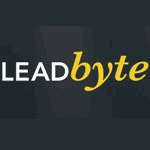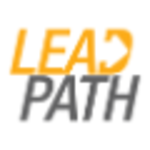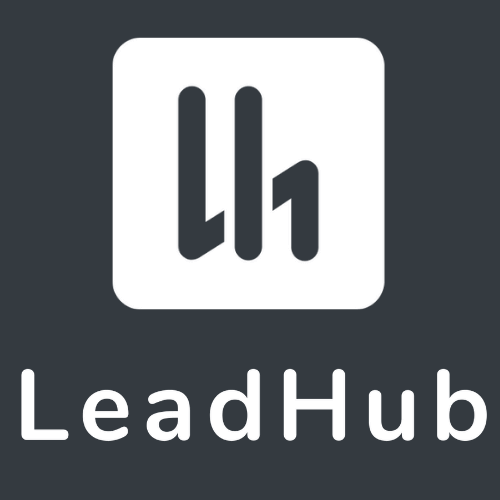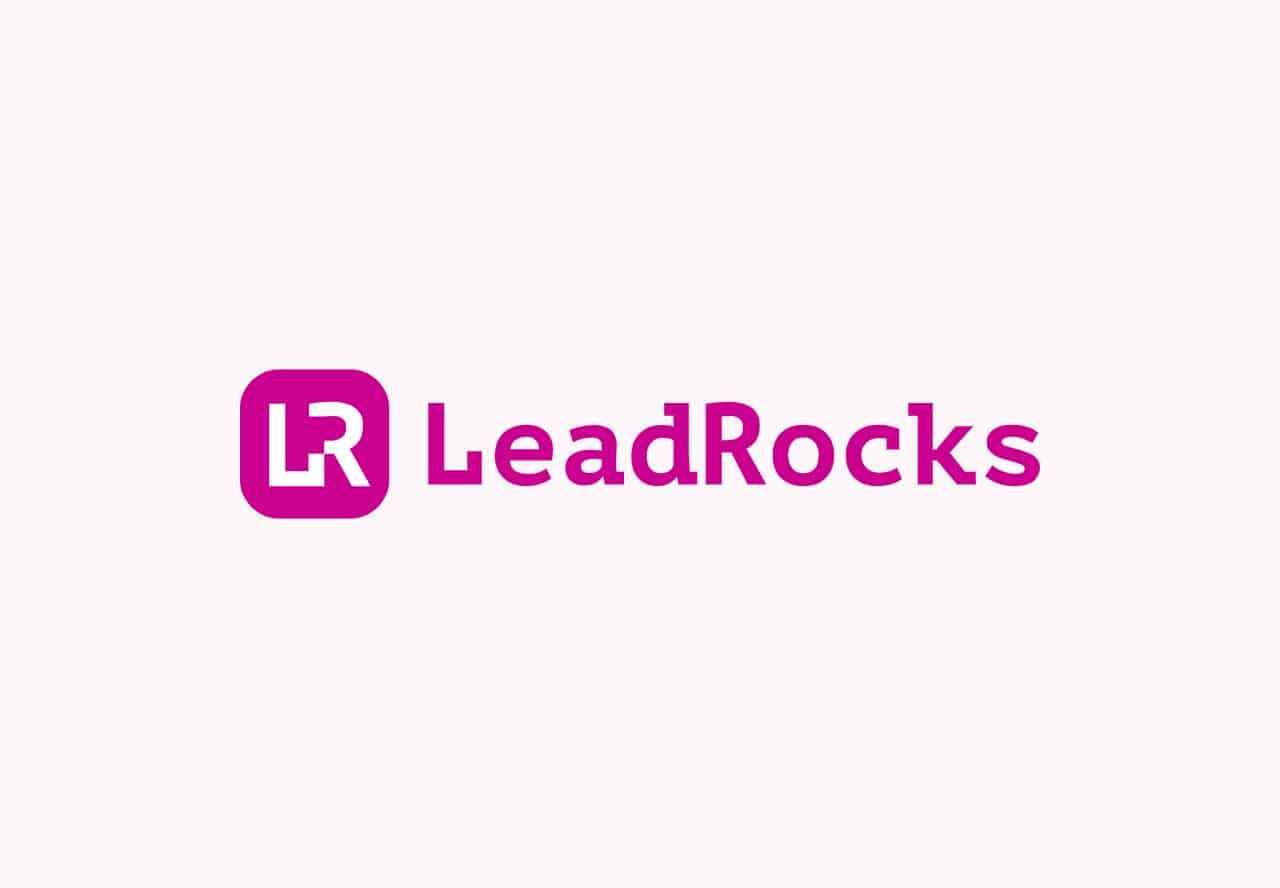Description

LeadByte

LeadPath
Comprehensive Overview: LeadByte vs LeadPath
LeadByte and LeadPath are platforms designed to manage and optimize lead generation and distribution, primarily targeting businesses that rely heavily on capturing and processing leads. Here’s a comprehensive overview:
LeadByte
a) Primary Functions and Target Markets
-
Primary Functions:
- LeadByte specializes in real-time lead capture and distribution, automation of lead processing, data validation, and tracking.
- It offers features like configurable lead distribution, real-time reporting, email and SMS marketing, and integration capabilities with various CRMs and other platforms.
- Designed to handle inbound and outbound leads and support complex sales processes with real-time validation and fraud detection.
-
Target Markets:
- It predominantly targets lead generation companies, digital marketing agencies, and businesses in industries like finance, insurance, and real estate that require robust lead management and distribution solutions.
b) Market Share and User Base
- LeadByte holds a solid position in the market due to its comprehensive feature set catering to diverse industries requiring lead automation.
- It’s popular among small to medium-sized businesses and agencies that value customizable lead management systems.
c) Key Differentiating Factors
- Emphasis on flexibility and customization for lead distribution rules and processes.
- Strong real-time lead validation and data quality control features.
- Robust integration capabilities with numerous third-party applications and marketing tools.
LeadPath
a) Primary Functions and Target Markets
-
Primary Functions:
- LeadPath focuses on lead capture, management, and distribution with an emphasis on performance tracking and analytics.
- It offers powerful tools for lead analytics, custom form builders, real-time lead routing, and campaign management.
- Emphasizes a user-friendly interface and ease of use, making it accessible for businesses without extensive technical resources.
-
Target Markets:
- Primarily targets marketers, agencies, and enterprises focused on optimizing lead acquisition and conversion processes.
- Works well for organizations looking for integrated solutions to capture, track, and analyze leads effectively.
b) Market Share and User Base
- LeadPath is recognized for its user-friendly nature, making it appealing to businesses that prioritize straightforward lead management.
- It is typically utilized by SMBs and some larger enterprises looking for a balance between functionality and user accessibility.
c) Key Differentiating Factors
- Offers a highly intuitive interface that simplifies the lead management process.
- Provides strong analytical tools to help businesses track lead performance and conversion metrics effectively.
- Emphasizes ease of use and quick setup, making it preferable for businesses with limited technical expertise.
Comparison and Differentiation
Both LeadByte and LeadPath serve the lead management and distribution space but differentiate themselves through specific features and user experiences:
-
LeadByte is favored for its flexibility, robust validation features, and strong integration capabilities, catering primarily to industries requiring complex lead handling processes and validation.
-
LeadPath stands out for its simplicity, ease of use, and powerful analytics, attracting businesses seeking a straightforward yet effective lead management and performance tracking solution.
Ultimately, the choice between LeadByte and LeadPath often depends on a business’s specific needs regarding lead complexity, required integrations, and user-friendly interface priorities.
Contact Info

Year founded :
2012
(000) 000-0017
Not Available
United Kingdom
http://www.linkedin.com/company/leadbyte

Year founded :
2015
+1 312-219-9660
Not Available
United States
http://www.linkedin.com/company/leadpath
Feature Similarity Breakdown: LeadByte, LeadPath
LeadByte and LeadPath are both lead management software solutions designed to help businesses capture, track, and manage leads efficiently. Here's a breakdown of their feature similarities and differences:
a) Core Features in Common:
-
Lead Capture and Import:
- Both platforms allow users to capture leads from various sources, including forms, APIs, and manual imports.
-
Lead Distribution:
- Automated lead distribution to appropriate sales teams or individuals based on predefined rules is a common feature.
-
Lead Scoring and Tagging:
- Both solutions offer lead scoring to prioritize leads based on predefined criteria and tagging for better organization.
-
Campaign Management:
- Users can create and manage marketing campaigns within both platforms, tracking the performance across different channels.
-
Real-time Analytics and Reporting:
- Both provide analytics dashboards and reporting tools to track lead performance metrics and ROI.
-
Integrations:
- Integration with third-party tools like CRMs, marketing automation platforms, and email marketing tools is supported by both.
b) User Interface Comparison:
-
LeadByte:
- Often praised for its clean and intuitive interface, which allows users to easily navigate through different sections of the platform.
- Its dashboard typically provides at-a-glance performance metrics and KPIs, helping users quickly gauge campaign effectiveness.
-
LeadPath:
- Also features a user-friendly interface but often described as more customizable in terms of layout and dashboard configuration.
- Some users appreciate the depth of customization but may find the initial setup more complex compared to LeadByte.
c) Unique Features:
-
LeadByte:
- Advanced Targeting and Segmentation: Offers highly detailed segmentation options to personalize and target specific lead groups more efficiently.
- Compliance and Data Protection: LeadByte places a strong emphasis on ensuring compliance with data protection regulations, often featuring robust tools for GDPR compliance.
-
LeadPath:
- Custom Workflows: Provides highly customizable workflow automation that allows users to set complex lead nurturing sequences.
- Native CRM Features: While primarily a lead management tool, LeadPath extends into CRM functionality with built-in sales pipeline management.
Both LeadByte and LeadPath offer strong feature sets for lead management but may cater to slightly different user needs. LeadByte is often preferred for its ease of use and compliance features, whereas LeadPath is chosen for its deep customization capabilities and additional CRM functionality.
Features

Not Available

Not Available
Best Fit Use Cases: LeadByte, LeadPath
LeadByte and LeadPath are both lead management platforms designed to streamline the process of lead acquisition, distribution, and management. However, they cater to different business needs and scenarios. Here's a breakdown of their best-fit use cases:
LeadByte
a) For what types of businesses or projects is LeadByte the best choice?
-
Performance Marketing Agencies: LeadByte is particularly effective for marketing agencies that manage multiple clients and require robust, real-time lead distribution capabilities. It allows agencies to handle leads from various sources and distribute them dynamically based on predefined rules.
-
Lead Generation Companies: Companies focused on generating and selling leads will find LeadByte's features useful for tracking the entire lead lifecycle, ensuring high-quality leads are provided to clients, and maximizing revenue through optimized lead management.
-
Businesses with High Lead Volume: Organizations dealing with a large volume of leads, such as financial services, insurance, or real estate, will benefit from LeadByte’s automation and scalability, which can efficiently manage and distribute leads to internal teams or third-party buyers.
-
Businesses Requiring Real-Time Data Processing: If real-time processing and distribution of leads are crucial, LeadByte offers the necessary tools and integrations to manage leads as they are acquired, ensuring immediate action.
d) How does LeadByte cater to different industry verticals or company sizes?
LeadByte is highly configurable, making it versatile for different verticals such as insurance, automotive, education, and more. Its scalable infrastructure supports businesses of varying sizes from small startups needing basic lead management capabilities to large enterprises requiring complex lead routing and CRM integrations.
LeadPath
b) In what scenarios would LeadPath be the preferred option?
-
Businesses Needing Customization: LeadPath is often favored by businesses that require a high degree of customization in their lead management process. It allows companies to tailor the lead experience and workflows to their specific needs.
-
Integrated CRM Solutions: For companies that need a seamless integration with their existing CRM systems, LeadPath can offer comprehensive solutions that align closely with internal systems for a unified lead management experience.
-
Emphasis on Sales Funnel Optimization: Organizations focused on optimizing their sales funnel and improving lead conversion rates can leverage LeadPath's analytical tools and customizable workflows to enhance sales strategies.
-
Industries with Regulatory Requirements: Industries such as healthcare or finance with strict compliance and regulatory needs might prefer LeadPath for its ability to customize and adhere to specific data handling requirements.
d) How does LeadPath cater to different industry verticals or company sizes?
LeadPath provides flexibility and customization suitable for industries with unique processes and compliance needs. It can be tailored for small-to-medium enterprises (SMEs) looking for affordable lead management solutions or large enterprises requiring detailed reporting, advanced analytics, and full CRM integration for complex operations.
In summary, both LeadByte and LeadPath offer robust lead management solutions but cater to different needs based on customization, volume, real-time processing, and integration requirements. The best choice depends on the specific business scenarios, industry verticals, and the scale at which the organization operates.
Pricing

Pricing Not Available

Pricing Not Available
Metrics History
Metrics History
Comparing undefined across companies
Conclusion & Final Verdict: LeadByte vs LeadPath
When evaluating LeadByte and LeadPath, two prominent lead management platforms, the analysis should consider factors such as features, pricing, user experience, scalability, and customer support. Here's a comprehensive conclusion and final verdict:
a) Best Overall Value
LeadByte offers the best overall value for businesses that require a fully customizable and feature-rich platform. Its advanced automation capabilities, real-time analytics, and integration with a wide variety of third-party tools make it an excellent choice for organizations with complex lead management needs. LeadByte is particularly well-suited for companies operating in fast-paced environments that demand rapid decision-making and deployment of marketing strategies.
b) Pros and Cons
LeadByte
Pros:
- Comprehensive Features: Includes advanced automation, flexible customizations, and real-time analytics.
- Integration Capabilities: Supports integrations with numerous marketing and CRM tools, which helps streamline operations.
- Scalability: Can efficiently manage a high volume of leads, making it suitable for growing businesses.
Cons:
- Complexity: The extensive features may result in a steeper learning curve for new users.
- Cost: Generally higher pricing may not be suitable for small businesses with limited budgets.
LeadPath
Pros:
- User-Friendly Interface: It offers a more intuitive and straightforward interface, making it easy for new users to adapt quickly.
- Affordable Pricing: More competitive pricing tiers are appealing for startups and small businesses.
- Essential Features: Provides essential lead management functionalities needed for basic to intermediate requirements.
Cons:
- Limited Customization: Offers less flexibility in terms of tailored solutions compared to LeadByte.
- Reduced Scalability: May not support extremely high volumes of leads or sophisticated operations as effectively as LeadByte.
c) Recommendations
For Users Deciding Between LeadByte and LeadPath:
-
Consider Business Size and Complexity: If your organization requires robust, comprehensive lead management with the potential for significant customization and scalability, LeadByte is the recommended option. It better handles complex workflows and high lead volumes.
-
Evaluate Budget Constraints: If cost-effectiveness and ease of use are priorities, especially for small to mid-sized businesses, LeadPath could be a more suitable choice. Its lower cost and user-friendly design may provide quicker ROI with less resource investment in onboarding.
-
Assess Feature Needs: Analyze the specific features your team needs. If basic functionality covers your needs, LeadPath’s simplicity might be sufficient. For advanced automation and integrations, LeadByte offers more depth.
Ultimately, the best choice hinges on a detailed assessment of your business’s specific requirements, budget availability, and the desired level of technical sophistication. Consider trialing both solutions to gauge which one aligns more closely with your operations.
Add to compare
Add similar companies



